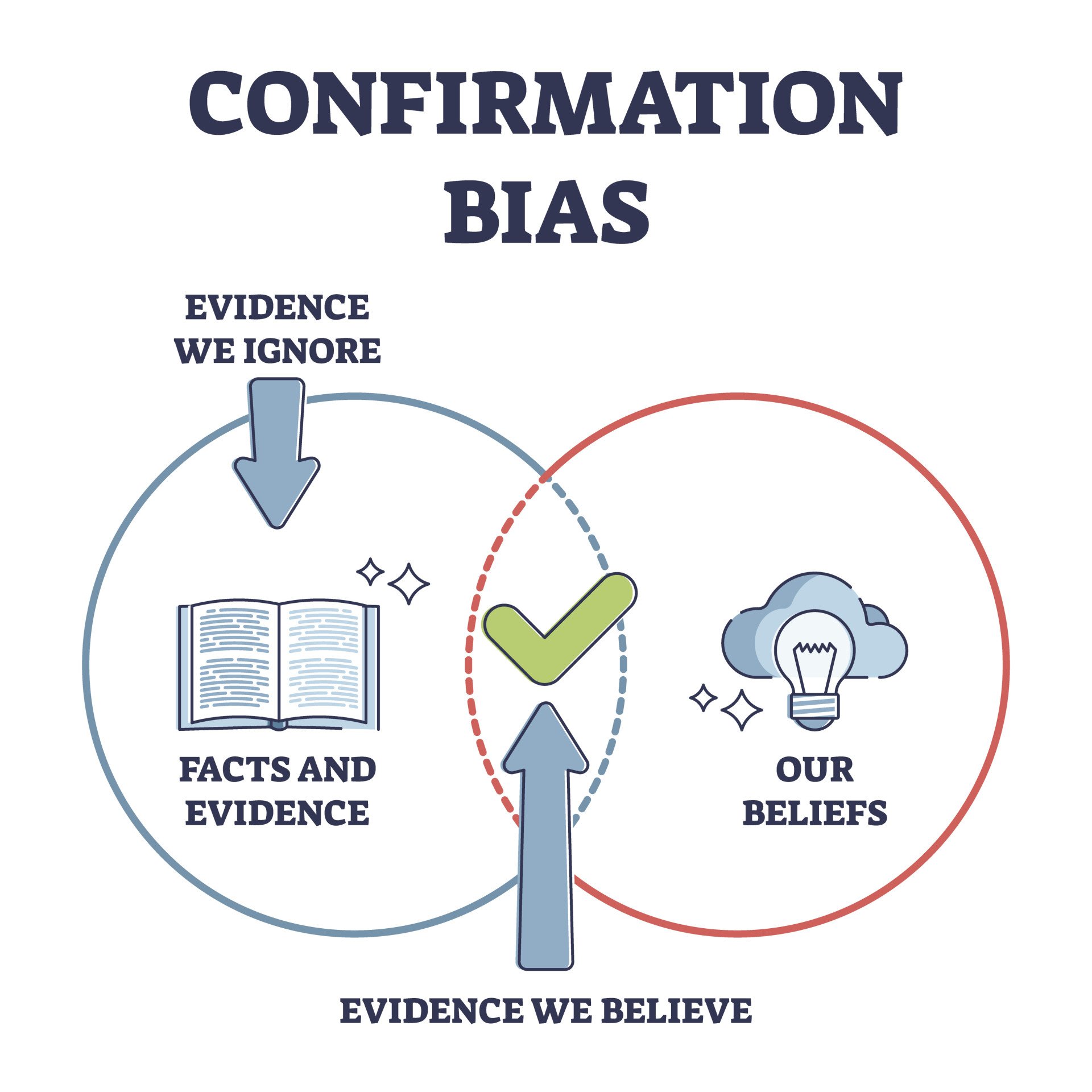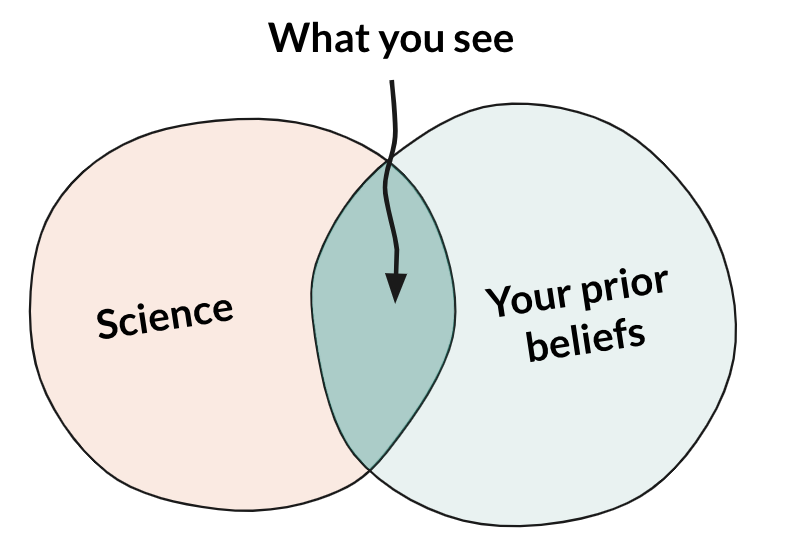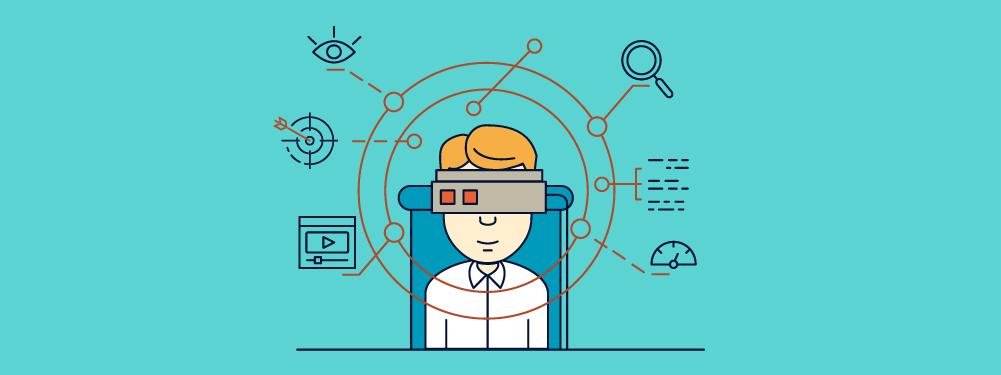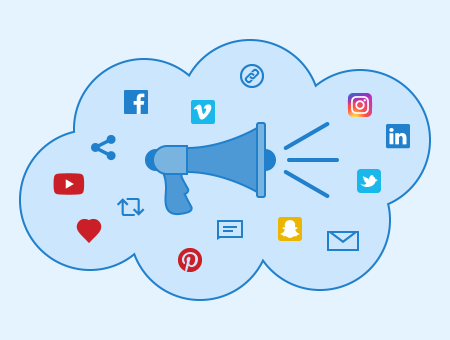Confirmation Bias
Britannica.com defines confirmation bias as, "people’s tendency to process information by looking for, or interpreting, information that is consistent with their existing beliefs."In 1960, Peter Watson created an early demonstration of confirmation bias through an experiment. In the study, the subjects had to figure out the experimenters method for sequencing numbers, and the subjects tended to find methods that supported their hypotheses. The idea of confirmation bias has been present in psychological literature for many years, but the term was not used until 1977 in a paper about a study. (simplypsychology.com)
Willard V. Quine and J.S. Ullian described this bias in The Web of Belief as:
 |
1. Biased Search for Information- When people search for information that supports their ideas/theories
2. Biased Interpretation- When people evaluate evidence differently based on their preconceived ideas/theories
3. Biased Memory- When people remember things differently in a way that supports their ideas/theories
(simplypsychology.com)
Examples of Confirmation Bias:
- A student working on a science fair project may look for evidence in their testing results that supports their original hypothesis.
- A republican may search for information that supports their beliefs.
- A person may interpret something one of their friend's actions in a positive light rather than a negative one because they do not want to believe someone they like can do wrong.
Examples were inspired by the ones on https://www.simplypsychology.org/confirmation-bias.html#Examples
One of the main reasons confirmation bias occurs is because it makes it easier for humans to process information. The human brain works hard to process the information we receive, and it is easier for our brains to connect new information with thoughts and ideas we already have. Sometimes this connection seems accurate in our brain, but it is really biased and may not appear to be connected to others.
Another reason confirmation bias occurs is because our brains want to make decisions based on survival. This causes us to take shortcuts to conclusions, one of those shortcuts being confirmation bias. Shortcuts allow us to conserve energy, a survival tactic.
According to Britannica.com, self-esteem is also a reason behind confirmation bias. People tend to feel badly about themselves when they find out that something they believed was true is actually false. Subconsciously, people want to create higher self-esteem by convincing themselves what they believe is true, even if there is evidence it is false.
In order to reduce confirmation bias, we need to challenge our own natural thought patterns. This does not come easily and takes conscious effort. In order to do this, we need to look at beliefs and ideas that contradict our own. This does not mean we have to abandon our own beliefs but to just consider other points of view. By comparing our own beliefs with others, we can potentially notice biases in our beliefs.
What I have Noticed About Confirmation Bias:
- I have noticed confirmation bias can be a source of arguments and tension between people. When two people interpret information differently because of their own biases, they may feel the need to convince the other person that their interpretation is the correct on. This can cause social issues amongst people.
- I have also realized that social media has played a role in confirmation bias. Social media algorithms tend to show you things you want to see. This can lead to confirmation bias because you are constantly seeing things that align with your currently beliefs on your feed and rarely seeing things that contradict your beliefs.
Confirmation bias is something that naturally happens within the human brain. However, if we are knowledgable on what confirmation bias is and how it can affect us, we can better learn how to combat our own biases and be aware of the biases of others.
:max_bytes(150000):strip_icc()/what-is-a-confirmation-bias-2795024_SOURCE-fef0b016bc1540038090a12e9a71b460.png)



No comments:
Post a Comment